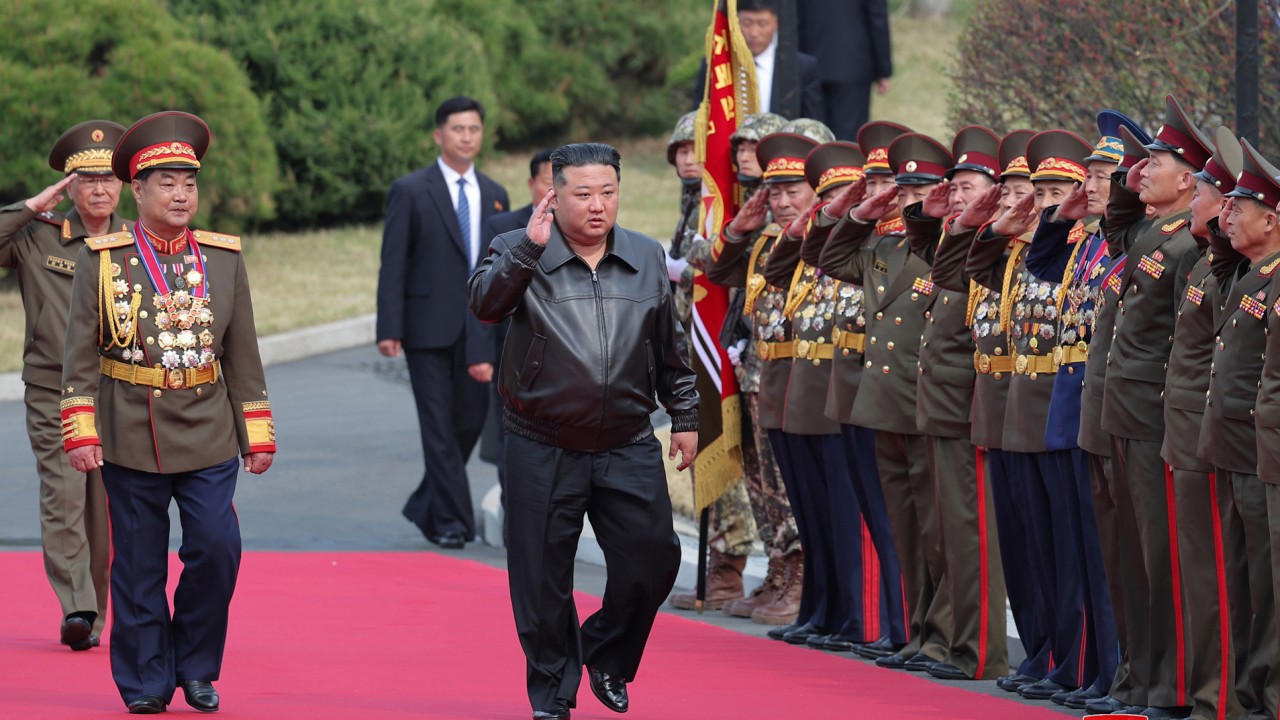
Chinese students back in North Korea as post-Covid exchanges return to life
- Group of 41, the first government-sponsored foreign students to enter North Korea since 2020, follows on heels of another 45 self-funded students
- Arrivals come weeks after China’s No 3 official leads large delegation on ‘goodwill visit’ to mark 75 years of diplomatic ties
China’s embassy in Pyongyang said the group represented the first government-sponsored foreign students to enter North Korea since the country closed its borders more than four years ago. The students were received at Pyongyang airport by embassy officials on Thursday.
Another 45 self-funded Chinese students had arrived in the North Korean capital “shortly before” this group, the embassy said in a post on its website on Friday.
While the number is slightly shy of pre-pandemic levels, their arrivals mark “the resumption of study abroad exchange programmes between China and North Korea”, according to the embassy.
North Korea was among the first countries in the world to seal its borders after a Covid-19 outbreak was first reported in the Chinese city of Wuhan in January 2020.
While cross-border trade resumed in 2022, Korea has been slow to reopen its borders. It was not until August last year that flag carrier Air Koryo resumed flights between Pyongyang and Beijing, as well as Vladivostok in the Russian far east.
The arrival of the students comes weeks after China’s No 3 official and top lawmaker Zhao Leji led a large delegation on a three-day “goodwill visit” to North Korea, becoming the latest senior Chinese official to visit the country since Pyongyang resumed diplomatic activities about a year ago.
Zhao’s visit, which included a meeting with Korean leader Kim Jong-un, saw him attend the opening ceremony of the “China-North Korea Friendship Year”, marking the 75th anniversary of diplomatic ties.
Kim also pledged to strengthen cooperation so as “to write a new chapter” in his country’s relationship with China.
There has been speculation that Kim might visit Beijing for talks with President Xi Jinping later this year. Their last meeting was five years ago, when Xi travelled to Pyongyang in June 2019, following Kim’s visit to Beijing in January.
As North Korea’s nuclear programme heightens tensions with South Korea and its treaty ally the United States, Pyongyang has been seeking to boost cooperation with both China – its No 1 trading partner – and Russia.
The West has also accused Pyongyang of supplying arms to Moscow to support its invasion of Ukraine, a charge rejected by both Russia and North Korea.
Beijing, which renewed its mutual defence treaty with Pyongyang in 2021, has long seen regional stability as a priority and has carefully kept its distance as North Korea seeks closer military cooperation with Russia.
North Korea buying Chinese surveillance cameras in push to tighten control
Still, Beijing’s growing coordination with Moscow, which has become more apparent in recent years, has drawn scrutiny from the US.
This came after China abstained from voting for the annual renewal of a multinational panel to oversee UN sanctions on North Korea over its nuclear weapons and ballistic missile programmes. The March 28 Security Council resolution was vetoed by Moscow.
Beijing had supported the panel renewal for 14 years.


